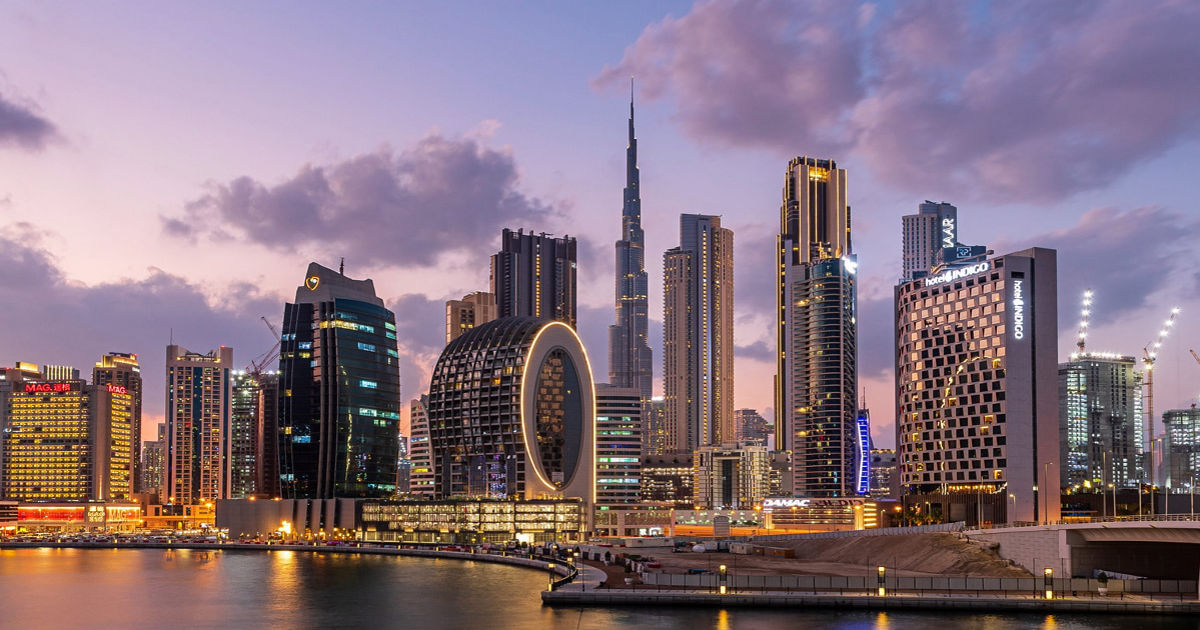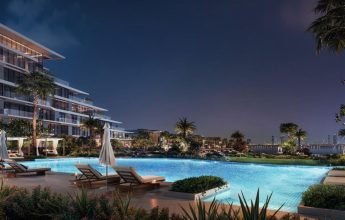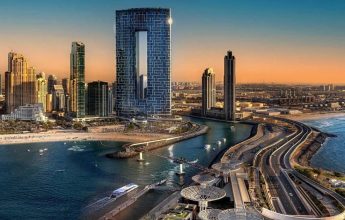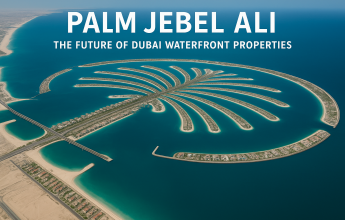Finding the Best Real Estate Investment in Dubai

Dubai’s skyline is a testament to its ambition, growth, and luxurious lifestyle. For savvy investors worldwide, the city represents more than just a premier travel destination; it’s a dynamic hub for property investment. Decades of strong regulatory development and reliable market data have made the Dubai property market renowned for its high rental yields, tax-free environment. And innovative developments such as sustainable communities and mixed-use projects. This guide leverages market insights, expert research, and practical experience to help you identify the best real estate investment in Dubai for your financial goals, risk profile, and lifestyle needs. Our approach breaks down the latest trends, government regulations, and investor best practices, supported by references to official authorities and respected consultancies.
Understanding the Dubai Property Market
Before making any investment, it’s essential to understand Dubai’s property landscape one built over the past two decades with a strong foundation of transparency and oversight. The sector is regulated by the Real Estate Regulatory Agency (RERA), part of the Dubai Land Department (DLD), a globally recognized authority. According to the DLD’s official reports, the market remains resilient. With over AED 528 billion in real estate transactions recorded in 2023 a testament to both local and international investor confidence.
Government programs such as the Golden Visa and significant infrastructure investment drive the sector’s momentum, entrenching investor rights and property security. Buyers generally have two options:
- Freehold: Foreign nationals may fully own property and land in over 60 designated freehold areas, increasing accessibility for global investors.
- Leasehold: Property rights are held for set terms (often up to 99 years), ideal for those seeking long-term occupancy in certain established communities.
A thorough familiarity with RERA regulations, escrow accounts for off-plan projects, and the issuance of Title Deeds provides vital protection and reduces investment risk. Leading consultancies including JLL, Knight Frank, and Colliers regularly highlight the robust compliance and transparency in Dubai’s system.
High ROI and Capital Appreciation
Drawing on independent reports and expert analyses, certain Dubai communities consistently outperform in terms of ROI and growth. When searching for the best real estate investment in Dubai, prioritize established and emerging neighborhoods with a proven track record.
- Dubai Marina: Supported by research from Bayut and Property Finder, this area enjoys rental yield resilience of 6–7% per year, attractive for short-term holiday homes and long-term lets.
- Downtown Dubai: The landmark district with the Burj Khalifa and Dubai Mall offers high appreciation rates and premium rents, confirmed by DLD statistics and JLL market research.
- Jumeirah Village Circle (JVC): Cited in Asteco’s market snapshot for its affordable pricing and booming demand, JVC delivers among the highest ROI for entry-level investors.
- Palm Jumeirah: Savills and Knight Frank both identify Palm Jumeirah as a magnet for luxury buyers, with strong value retention and robust rental returns despite market cycles.
- Business Bay: Dubai’s business hub, with stable demand from professionals, is frequently listed in CBRE’s semi-annual market outlook for its central location and modern amenities.
New investment hotspots like Dubai Creek Harbour and Expo City are highlighted in consultancy forecasts thanks to infrastructure planning and capital inflow in the wake of Expo 2020.
Choosing the Right Property Type
Based on DLD transaction data and comparative studies from Colliers International, the right property type hinges on your goals:
- Apartments: Centrally located units in Downtown and Dubai Marina offer attractive rental yields, often 6–8%, and are less exposed to vacancy due to diversified tenant pools.
- Villas/Townhouses: Ideal for capital appreciation, these properties in communities such as Arabian Ranches and DAMAC Hills appeal to families seeking quality amenities and security. Properties here historically have a higher entry point but remain resilient during market fluctuations (JLL UAE Property Market Report 2023).
Off-plan opportunities across both types enable buyers to lock in favorable prices, with payment plans and customizable layouts provided by established, RERA-approved developers like Emaar, DAMAC, and Sobha Realty.
The Appeal of Off-Plan Properties
As documented by the DLD and endorsed by industry leaders, off-plan investment provides investors with:
- Flexible payment schedules
- Access to new developments in high-demand neighborhoods
- The potential for capital appreciation prior to project delivery
However, it’s essential to conduct due diligence on a developer’s RERA registration, escrow compliance, and project track record. As the Dubai Land Department and leading advisory firms echo, only engage with projects listed on the DLD’s official Oqood system and steer clear of unregistered offerings.
Analyzing Rental Yields and Financial Metrics
Drawing directly from official DLD and leading brokerage reports, finding the best real estate investment in Dubai means looking past the sticker price. Key performance indicators include:
- Gross Rental Yields: Dubai’s average gross yields (5–8%) outpace most global cities (JLL, 2023). Rental yield calculators are available on the DLD’s portal for precise calculations.
- Net Yields: Account for all holding costs, such as service/maintenance fees and management charges transparency here is critical for realistic planning.
- Capital Appreciation: In 2022–23, price appreciation was strongest in JVC, Palm Jumeirah, and Dubai Hills Estate, with double-digit growth in selected segments (Knight Frank).
- ROI: Evaluated by incorporating both rental yield and appreciation, this metric provides holistic clarity for long-term investment performance.
Being precise with numbers and verifying via credible data sources is central to making investment choices you can trust.
Navigating the Legal and Financial Framework
Dubai’s property transaction process is ranked as one of the most transparent in the Middle East by Transparency International. Following these steps, verified by DLD and leading legal advisories, safeguards your investment:
- Negotiate and formalize the Memorandum of Understanding (MOU)
- Deposit typically 10% in a DLD-regulated escrow/trustee account
- Complete the purchase by paying DLD transfer fees (4%) and agent commissions
- Secure the Title Deed directly from the DLD office
Both residents and non-residents have access to major mortgage providers like Emirates NBD and Mashreq Bank. For complete transparency, use DLD-provided calculators to estimate all transaction and holding costs.
Your Key to a Secure Investment
Due diligence is non-negotiable in Dubai’s competitive market, as emphasized by the DLD, government advisories, and credible consumer advocacy groups. Best practices include:
- Checking developer records on the official DLD website
- Demanding verified Title Deeds and confirming service charge clearance with landlords or the Owners Association
- Reviewing customer satisfaction ratings and handover timelines for off-plan projects (using RERA’s project tracker)
- Engaging only agents accredited by RERA and Dubai’s Brokers Register
Industry experience and case studies support these actions, greatly reducing fraud risk and contractual disputes.
Conclusion
The Dubai property market, underpinned by transparent regulation, reliable yield data, and diverse property options, offers compelling opportunities for international and local investors alike. Armed with up-to-date market insights, verified developer practices, and a commitment to comprehensive due diligence. You are equipped to find the best real estate investment in Dubai that aligns with your financial aspirations and security expectations. Consultation with qualified professional’s lawyers, licensed agents. And financial consultants further assures that your investment experience is built on trust, expertise, and proven local knowledge.
Frequently Asked Questions (FAQs)
1. Can foreigners buy property in Dubai?
Yes, international buyers can own freehold properties in over 60 government-approved areas. They must register all purchases with the Dubai Land Department (DLD) to ensure legal protection and receive Title Deeds.
2. What is the Golden Visa for property investors?
The Golden Visa allows eligible investors to secure 10-year residency by purchasing property worth a minimum of AED 2 million. Both off-plan and completed properties qualify, provided the funds are not loans unless through specific banks.
3. What are average Dubai rental yields and returns?
According to JLL and DLD reports, gross yields range from 5% to 8% per year. Areas such as JVC, International City, and Dubai Sports City lead in yield, while Palm Jumeirah and Downtown secure premium rental and capital appreciation potential.
4. Are there annual property taxes or extra fees in Dubai?
Dubai remains tax-free on rental and capital gains income. The main transaction costs include a 4% DLD fee, agent commissions, and yearly service charges, which vary by project amenities and are listed transparently on DLD platforms.
5. How do I maximize ROI and reduce risk in Dubai property investment?
Prioritize research consult official platforms like the DLD website and RERA’s broker registry, review developer reputations. And secure your investment only through verified, registered agents and legal frameworks. Utilizing services from reputable global consultancies or experienced local advisors helps ensure a smooth, well-informed process.






